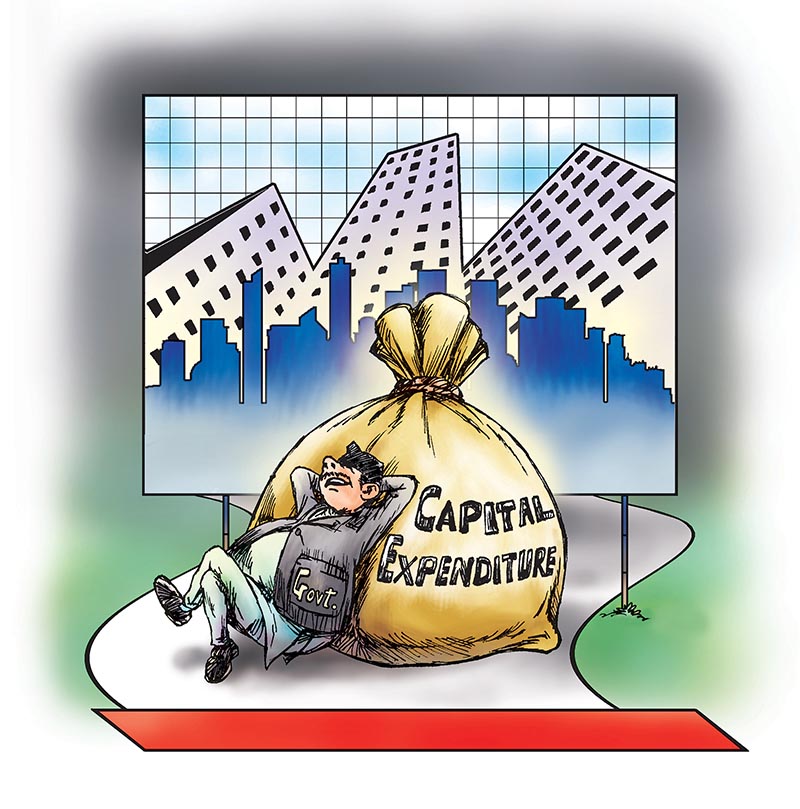Govt yet again fails to improve budget spending capacity
Kathmandu, December 18
The relatively stronger and stable government of Prime Minister KP Sharma Oli, unlike the previous governments, was expected to boost development works across the country and improve the government’s budget spending capacity. However, the Oli-led government has also failed to invest its funds in capital formation programmes owing to its lethargic budget spending capacity and capital expenditure is still very slow.
As per the statistics of the Financial Comptroller General Office (FCGO), the government has managed to spend merely 12.59 per cent of the total budget allocated under capital expenditure in the first five months of the current fiscal year. Of the Rs 313.998 billion allocated for capital expenditure for fiscal year 2018-19, capital spending stands at only Rs 39.51 billion as of today.
Meanwhile, the government has spent Rs 250.5 billion as recurrent expenditure during the review period. The recurrent expenditure is basically spending of the government on non-capital formation programmes like salaries of government staffers, social security and other expenses. The recurrent expenditure of the government in the first five months of fiscal 2018-19 stands at 29.63 per cent of the total allocated budget worth
Rs 845.4 billion under this heading.
Likewise, the government has been able to spend 13.98 per cent or Rs 21.7 billion on financing till mid-December out of the total allocated budget of Rs 155.7 billion for ongoing fiscal year.
Of the total Rs 1.31 trillion fiscal budget for 2018-19, the government’s total expenditure so far stands at Rs 311.8 billion or 23.71 per cent.
Private sector representatives have said that the country’s inefficient system, various expenditure controlling mechanisms and the failure of the government to introduce effective policies to expedite development works have led to low expenditure of the budget. “This is solely a systemic problem in Nepal’s economy,” said Hari Bhakta Sharma, president of Confederation of Nepalese Industries, adding that necessary policy intervention has to be initiated to boost budget spending capacity of the government.
According to him, low budget spending will have an adverse impact on Nepal’s economy as such trend will impede development works, employment generation and the growth of the entire economy.
Meanwhile, the government was able to collect revenue worth Rs 352 billion in the first five months of fiscal 2018-19, which is 37.25 per cent of the total revenue collection target of Rs 945 billion for this fiscal year.






